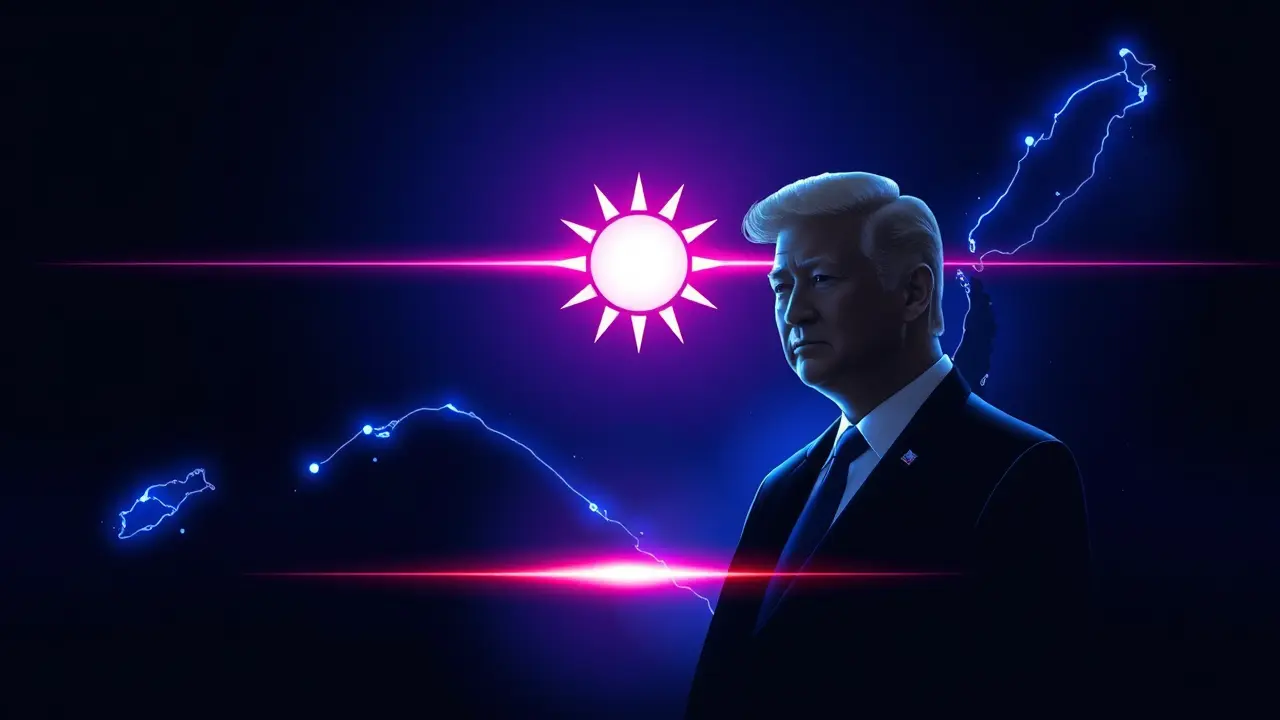
PoliticsdiplomacyBilateral Relations
Trump Claims Xi Assured No Taiwan Action During His Presidency.
RO
Robert Hayes
14 hours ago7 min read
In a revelation that carries profound implications for the delicate geopolitical balance in the Pacific, former US President Donald Trump has asserted that his Chinese counterpart, Xi Jinping, provided him with personal assurances that Beijing would refrain from any military or coercive action regarding Taiwan for the duration of his presidency. This claim, extracted from a recent CBS News interview and released this past Sunday, suggests that the status of the self-ruled island—which Beijing consistently claims as an inalienable part of its territory, to be reclaimed by force if necessary—'never even came up as a subject' during the leaders' discussions last week.To fully grasp the weight of this statement, one must delve into the historical context of the 'One China' policy, a cornerstone of Sino-American relations since the Nixon era, which has been both a stabilizing framework and a persistent source of tension. While the United States, like most nations, maintains no formal diplomatic recognition of Taiwan, it is legally bound by the Taiwan Relations Act to provide the island with the means to defend itself, creating a strategic ambiguity that has prevented outright conflict for decades.Trump's disclosure, however, injects a deeply personal and potentially volatile variable into this long-standing calculus, reminiscent of historical moments where individual leader relationships, such as the Reagan-Gorbachev dynamic during the Cold War, momentarily reshaped global security paradigms. Analysts are now fiercely debating the credibility and consequences of such a gentleman's agreement; some view it as a temporary de-escalation, while others warn it dangerously undermines institutional foreign policy in favor of personal diplomacy, leaving the strategic situation vulnerable to the whims of changing administrations.The potential fallout is immense, affecting everything from global semiconductor supply chains, given Taiwan's dominance in chip manufacturing, to the broader US-led alliance structure in Asia aimed at countering Chinese expansion. Should this personal assurance be tested or broken, it could trigger a cascade of events drawing parallels to the 1996 Taiwan Strait Crisis, forcing a reluctant international community to choose sides in a conflict that would redefine the 21st-century world order.
#lead focus news
#US-China relations
#Taiwan
#Donald Trump
#Xi Jinping
#diplomatic assurances
#cross-strait policy
Stay Informed. Act Smarter.
Get weekly highlights, major headlines, and expert insights — then put your knowledge to work in our live prediction markets.
Related News
© 2025 Outpoll Service LTD. All rights reserved.













